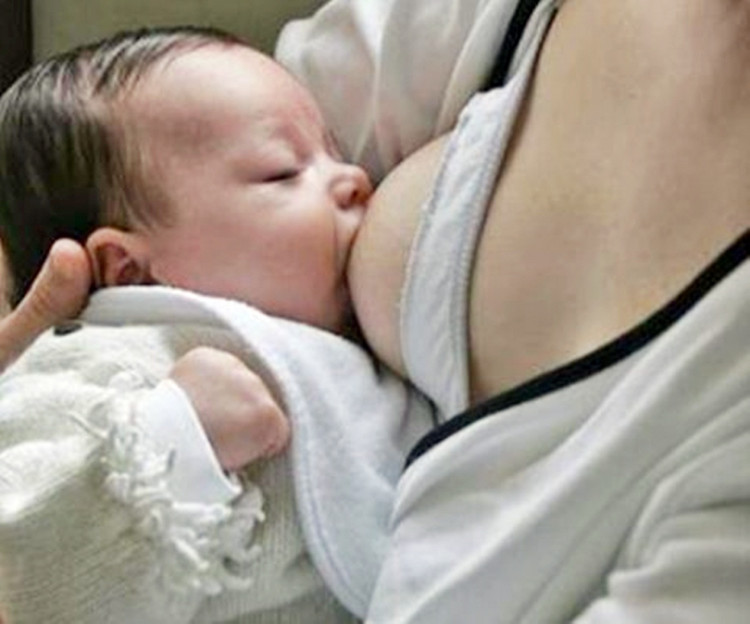A team of scientists in China says breast milk might prevent or treat COVID-19.
The conclusion fleshed out in two non peer-reviewed papers posted on biorxiv.org is a turnaround from the prevailing wisdom that breastfeeding increases the risk of transmitting severe acute respiratory syndrome coronavirus 2, the virus that causes COVID-19.
Interested by breast milk's known antibacterial and antiviral properties, China researchers tested the effects of breast milk on cells exposed to SARS-CoV-2.
They worked with the knowledge the components of breast milk exhibited antiviral activity against HIV, HCMV and hepatitis C viruses. They also said lactoferrin in milk was reported to have antiviral activity and can inhibit intracellular HCV replication. Lactoferrin is an iron binding protein whose function is to transport iron in blood serum.
"Considering that breast milk can inhibit some viruses, such as human immunodeficiency virus, cytomegalovirus and dengue virus, we supposed that breast milk could also inhibit SARS-CoV-2 infection," said the study.
The milk used in the study was collected in 2017, well before the outbreak of the pandemic in Wuhan, China in December. The cell types tested varied from animal kidney cells to young human lung and intestinal cells.
The study reveals the results were the same in all cases - most living virus strains were killed by breast milk. It found breast milk was "blocking viral attachment, entry and even post-entry viral replication."
The main ingredient in breast milk responsible for blocking the attachment of SARS-CoV-2 is "whey protein." The study found whey protein from human breast milk "effectively inhibited both SARS-CoV-2 and GX_P2V by blocking viral attachment, entry and even post-entry viral replication. GX_P2V is a pangolin coronavirus related to SARS-CoV-2.
In addition to breast milk, the study "found that whey protein from species such as cows and goats also showed anti-coronavirus properties. And commercial bovine milk also showed similar activity."
"Taken together, we reported that whey protein inhibits SARS-CoV-2 and its related virus of GX_P2V," asserts the study.
In their study, the team led by professor Tong Yigang from the Beijing University of Chemical Technology mixed some healthy cells in breast milk, washed the milk off and exposed the cells to the virus.
They observed there was almost no viral binding or entry into these cells. They said the treatment halted viral replication in cells already infected.
They concluded the infection could be inhibited by breast milk, which is already known to have suppressive effects on bacteria and viruses such as HIV.





